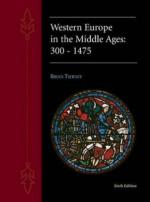|
This section contains 1,106 words (approx. 4 pages at 300 words per page) |

|
Marital Relations. Married people were confronted with a bewildering array of teachings and prohibitions controlling and restricting marital sexuality. First and foremost was the notion that sexual intercourse rendered the participants unclean. As a result, the Church tried to restrict when, where, and how married people could have sex. Intricate regulations prohibited sex during the holy seasons of Advent, Lent, and Whitsuntide; on Sundays, Wednesdays, Fridays, and Saturdays; and on other holy days. Intercourse was also forbidden during menstruation, pregnancy, and lactation. Moreover, newlyweds were expected to wait three nights to consummate their union and couples who had sexual relations were advised not to receive communion the next day. Related to these notions of pollution were prohibitions against sex in a church, cemetery, or other holy place. While these restrictions may sound unrealistic and even unnecessary...
|
This section contains 1,106 words (approx. 4 pages at 300 words per page) |

|




